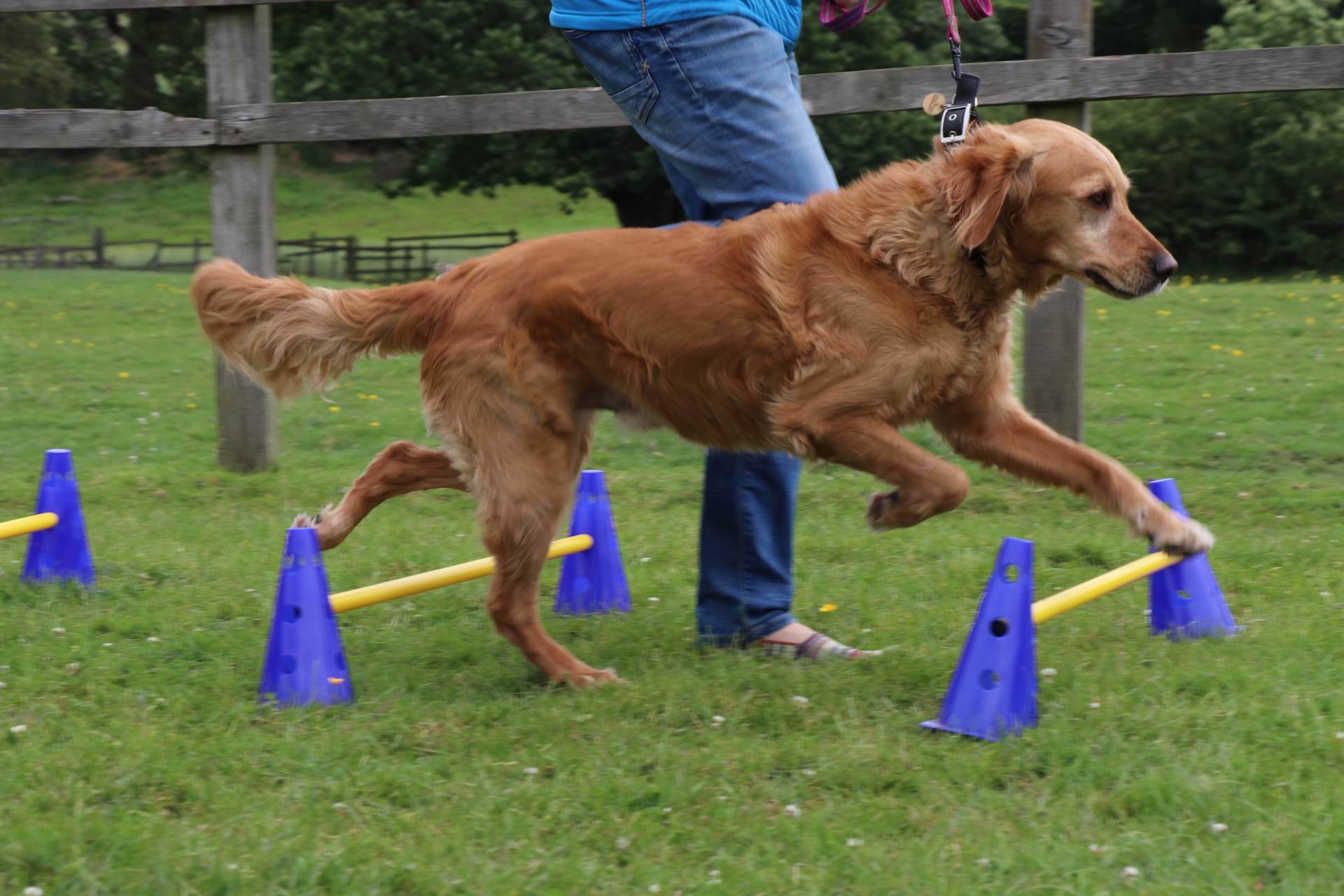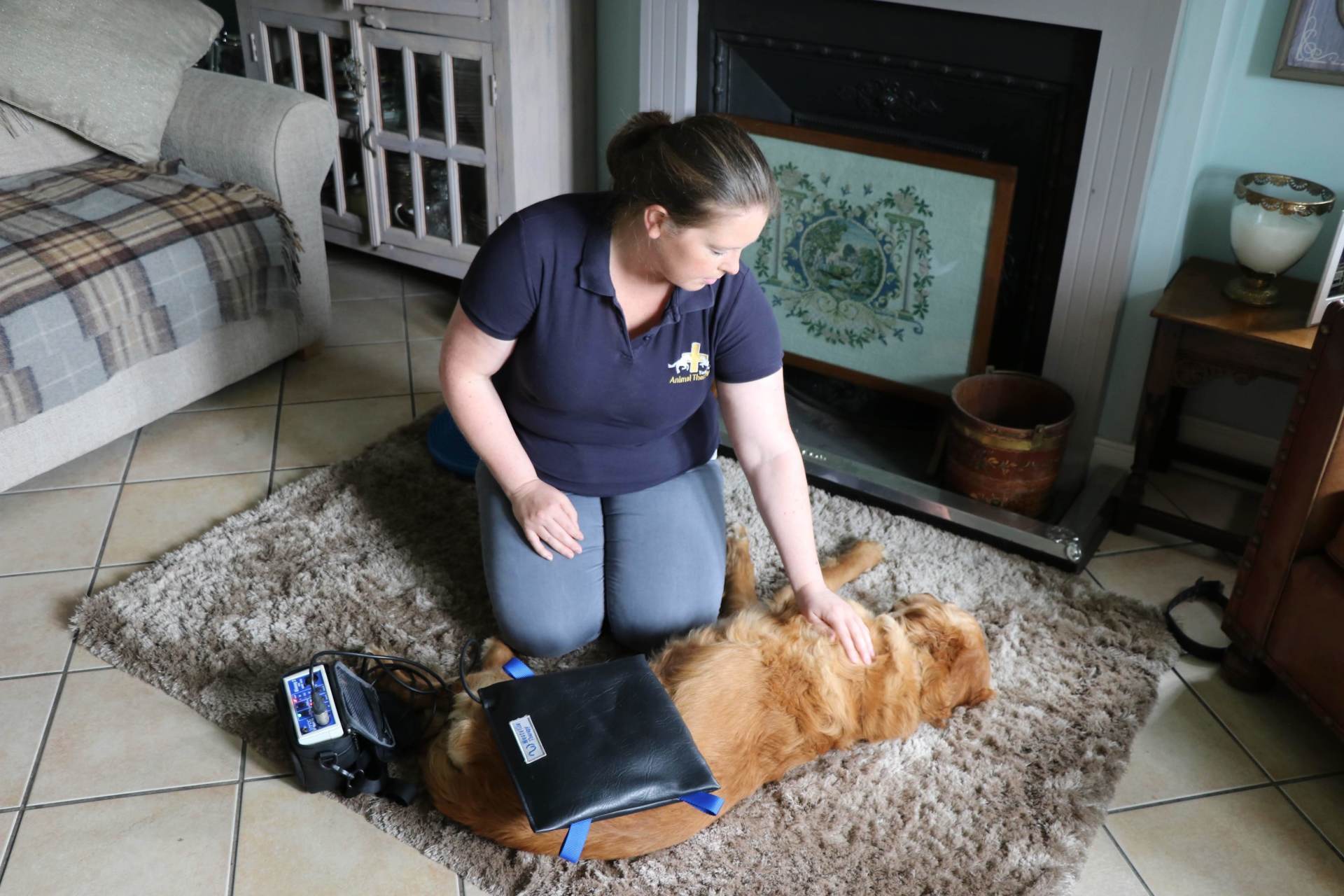Canine Physiotherapy Treatment
Physiotherapy and Rehabilitation For Your Dog
Working with veterinary practices, I often get referred cases where a dog requires physiotherapy pre and post surgery. I have rehabilitated many different dogs, from post cruciate surgery, following road traffic accidents and providing an alternatives to long term pain relief for arthritis.
I treat all types of dogs from small chihuahuas to large Bernese mountain dogs. They all have different jobs whether they're a family pet, working gun dog, agility dog etc I tailor each rehabilitation/exercise plan individually to suit the owner and the dog.
An initial appointment will usually take 1 hour 30 minutes and I will always follow up in 7 to 10 days with a second appointment which takes 45 minutes to an hour. I find it extremely beneficial to me, the dog and the owner when coming back after a week as it enables me to see where we stand and then build an accurate treatment/maintenance plan going forwards.
A dog physiotherapy appointment will consist of:
Assessment:
- Detailed discussion of patient history.
- General health check and conformational analysis.
- Gait analysis and lameness assessment where necessary.
- Patient assessment summary.
- Palpation of all muscles to identify muscle asymmetry, tone, lesions
- Range of motion of all relevant joints
Treatment:
- Massage and soft tissue techniques where applicable
- Electrotherapies where applicable
- Joint mobilisations / stretches
Aftercare:
- General verbal aftercare regime - given on the day.
- Detailed written aftercare regime - sent via email up to a week post consultation.
Signs Your Dog May Require A Physiotherapy Treatment
- Behavioural changes e.g. unexplained grumpiness/aggressiveness, reluctance to exercise, difficulty going to the toilet.
- Generalised stiffness - after laying down, before or after exercise.
- Difficulty getting in/out of the car.
- Struggling with jumping/stairs.
- Loss of condition/appetite.
- For specific medical conditions: hip/elbow dysplasia, arthritis, cruciate damage
- Lameness


